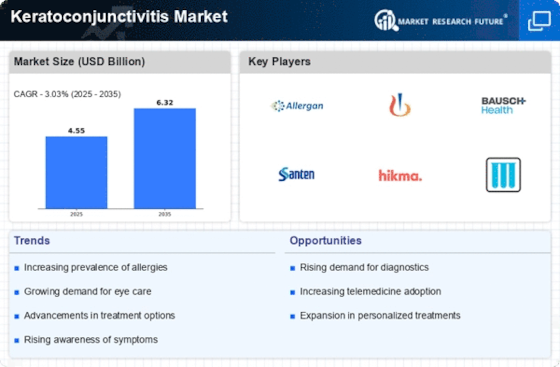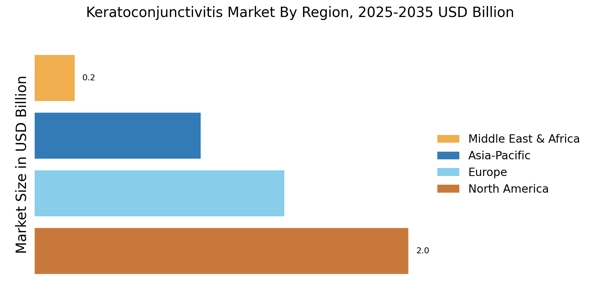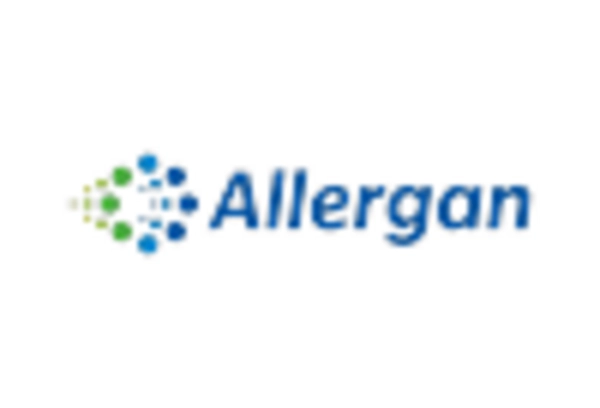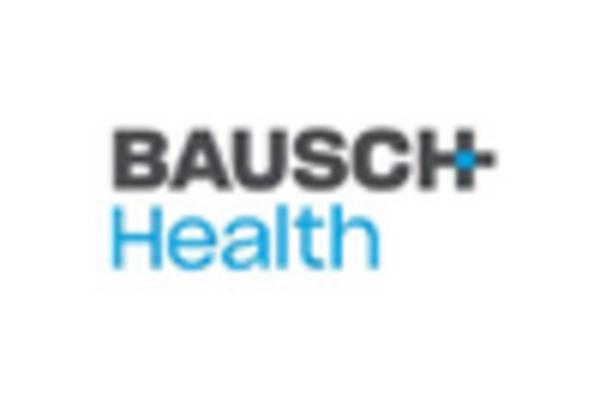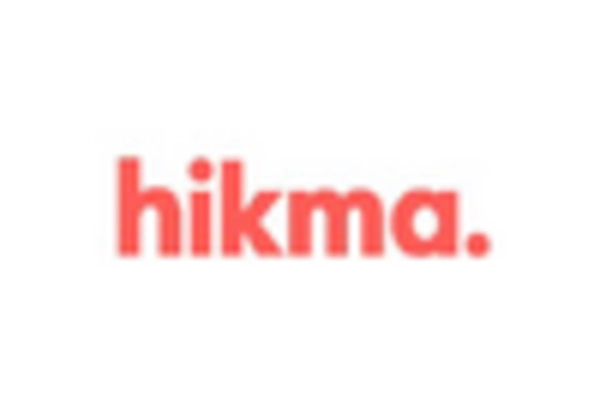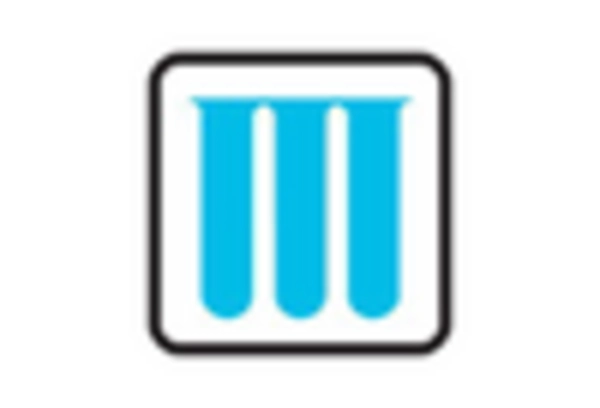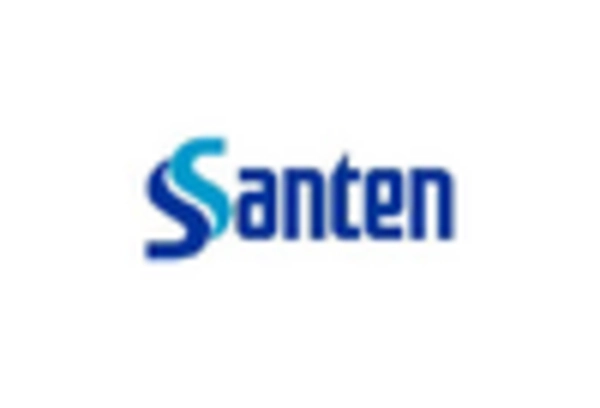Advancements in Diagnostic Technologies
Technological advancements in diagnostic tools are significantly influencing the Keratoconjunctivitis Market. Innovations such as high-resolution imaging and point-of-care testing facilitate early detection and accurate diagnosis of keratoconjunctivitis. These advancements not only enhance patient outcomes but also encourage healthcare professionals to adopt new diagnostic methods. The introduction of automated systems and artificial intelligence in diagnostics is expected to streamline processes, making it easier to identify and treat keratoconjunctivitis. As a result, the market is likely to witness an increase in demand for diagnostic devices and services, contributing to overall growth in the Keratoconjunctivitis Market.
Growing Awareness and Education Initiatives
The increasing awareness and education initiatives regarding keratoconjunctivitis are pivotal in shaping the Keratoconjunctivitis Market. Public health campaigns aimed at educating individuals about the symptoms, causes, and treatment options for keratoconjunctivitis are gaining traction. These initiatives are likely to lead to earlier diagnosis and treatment, thereby reducing the burden of the disease. Furthermore, healthcare providers are increasingly focusing on patient education, which may enhance adherence to treatment regimens. As awareness continues to grow, the demand for effective therapies and management strategies in the Keratoconjunctivitis Market is expected to rise.
Impact of Environmental Factors on Eye Health
Environmental factors play a crucial role in the prevalence of keratoconjunctivitis, thereby influencing the Keratoconjunctivitis Market. Increased exposure to pollutants, allergens, and climate change-related factors has been linked to a rise in eye health issues, including keratoconjunctivitis. As urbanization continues and environmental conditions worsen, the incidence of this condition is expected to rise. This trend may lead to heightened demand for preventive measures and treatment options. Consequently, stakeholders in the Keratoconjunctivitis Market are likely to focus on developing solutions that address the impact of environmental factors on eye health, thereby driving market growth.
Increasing Prevalence of Keratoconjunctivitis
The rising prevalence of keratoconjunctivitis is a notable driver in the Keratoconjunctivitis Market. Factors such as environmental pollution, allergens, and lifestyle changes contribute to the increasing incidence of this condition. Reports indicate that allergic conjunctivitis affects millions, with estimates suggesting that around 15-20% of the population may experience symptoms at some point in their lives. This growing patient population necessitates effective treatment options, thereby propelling the demand for therapeutic solutions within the Keratoconjunctivitis Market. As awareness of the condition increases, healthcare providers are likely to prioritize diagnosis and management, further stimulating market growth.
Rising Demand for Innovative Treatment Options
The demand for innovative treatment options is a significant driver in the Keratoconjunctivitis Market. Patients are increasingly seeking effective and convenient therapies that address their symptoms and improve quality of life. Recent developments in pharmacological treatments, including novel antihistamines and anti-inflammatory agents, are gaining popularity among healthcare providers and patients alike. Additionally, the emergence of combination therapies that target multiple pathways of the disease may enhance treatment efficacy. As the market evolves, the introduction of new and improved treatment modalities is likely to attract investment and research, further propelling growth in the Keratoconjunctivitis Market.


